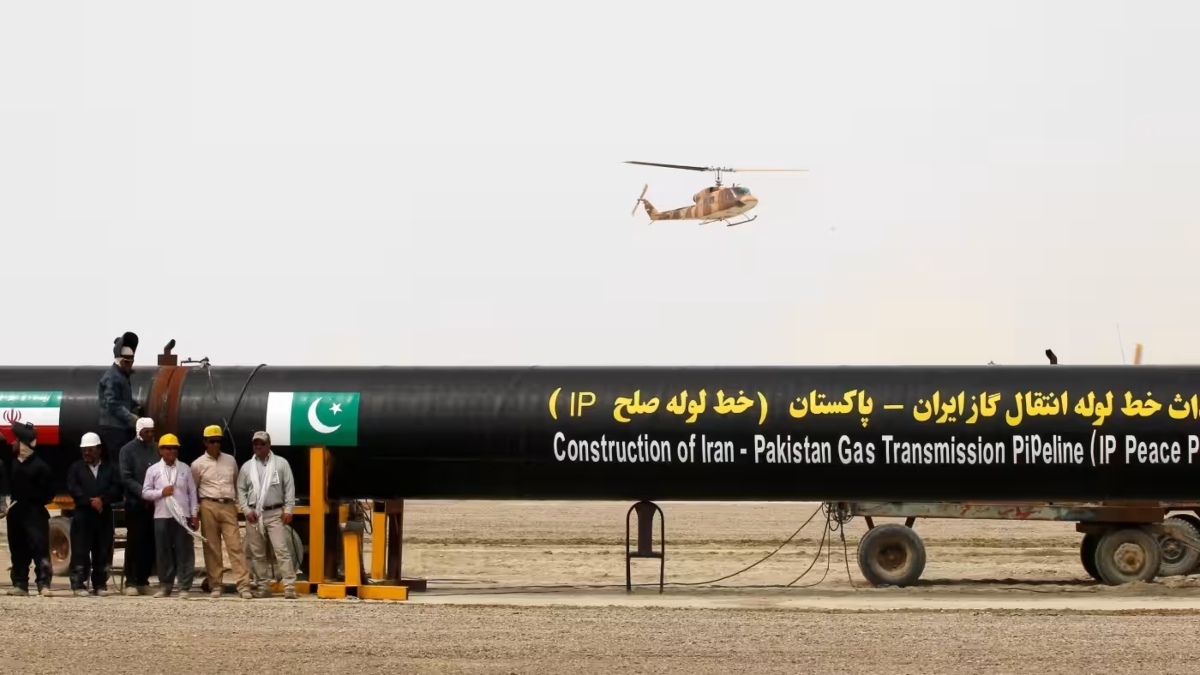Iran has issued a final warning to Pakistan to complete its section of the cross-border gas pipeline or risk international arbitration and potentially face billions of dollars in penalties.
According to a Nikkei Asia report, Tehran’s warning is the latest escalation in the long-standing dispute over the 1,900-kilometer (1,180-mile) pipeline, a project vital to Pakistan’s energy future as its own gas reserves are expected to deplete in just over a decade.
Iran has said it invested $2 billion in building its 1,150-km section of the pipeline, which was inaugurated in 2013. However, Pakistan’s portion remains incomplete due to US sanctions imposed on Tehran over its nuclear programme.
Last year, Islamabad invoked a force majeure clause to suspend its contractual obligations, citing uncontrollable circumstances. Tehran promptly rejected this claim, added the report.
In February, Pakistan announced the commencement of construction on the 80-kilometer initial phase of the pipeline within its territory.
According to the report, in March, Donald Lu, the US Assistant Secretary of State for South and Central Asian Affairs, warned Pakistan against importing gas from Iran, which holds some of the largest reserves globally. Since then, no additional progress has been made on Pakistan’s portion of the pipeline.
Now, Iran is threatening to take the dispute to the International Court of Arbitration if Pakistan fails to meet the imminent deadline to complete the pipeline. Pakistan had requested a 10-year extension to finish the project in 2014, and this extension is set to expire this month.
Delicate balance
Pakistani officials face a delicate balance trying to avoid Washington’s ire over doing business with Iran but they also want to sidestep huge court fines that would hammer the crisis-hit economy - Islamabad recently agreed to a $7 billion International Monetary Fund (IMF) bailout.
Impact Shorts
More Shorts“Iran’s case is pretty much straight forward that Pakistan has violated the terms of a bilateral agreement for which it can be sued as clearly mentioned in the written contract,” Nikkei Asia quoted Ikram ul Haq, an expert on economy and taxation who holds a doctorate in law, as saying.
According to the report, citing local media, Paris-based court could impose penalties of up to $18 billion on Pakistan if it loses the case. Those figures are based on contractual daily penalties for not completing the project, plus interest and damages.
“Pakistan and Iran have robust channels of communication, including (on the pipeline notice),” Nikkei Asia quoted a spokesperson for Pakistan’s Ministry of Foreign Affairs as saying in a statement on Thursday. “We have always said we would like to resolve all issues through friendly consultations,” added the spokesperson.
A government official privy to the late August notice told the media outlet that Islamabad was taking it seriously and exploring its options, but added that the $18 billion figure was “pure speculation.”
Pakistan made to pay in the past
In 2019, the arbitration court ordered Pakistan to pay nearly $6 billion to an Australian mining company for breaching a contract after revoking the firm’s access to a copper and gold mine. Pakistan later settled by paying $1 billion to the company’s parent.
The US sanctions are central to Washington’s broader strategy to isolate Iran, and the pipeline “has become a casualty of this strategy,” Nikkei Asia quoted Ahsan Hamid Durrani, executive director of Islamabad’s Policy Research Center, as saying.
Sanctions have led Iranian traders to smuggle up to $1 billion worth of natural gas into Pakistan annually, according to the report, citing Pakistani intelligence agencies earlier this year.
Haq noted that Pakistan would face challenges obtaining a sanctions waiver from Washington to complete the pipeline project. “Pakistan is economically weak and dependent on the IMF,” he said. “Unlike India, Pakistan cannot get any waiver from America.”
Durrani concurred, highlighting that countries under IMF programs must adhere to international sanctions.
“Pakistan doesn’t have any leverage with the US to circumvent the current sanctions regime,” he said. “With the IMF loan agreement still in process, Pakistan needs all the support it can get from the US and cannot risk violating the sanctions.”
With inputs from agencies


)

)
)
)
)
)
)
)
)



